If your camp counselor rigged a watermelon with fireworks, your head counselor plunged from the sky on a zip line and your night activity director paraded through a flea market in a hot pink snowsuit, then you’re probably in Ukraine’s Camp Gan Israel Yekatrinoslav.
‘We give the kids three weeks of insanity to keep them going for a whole year,’ said Akiva Danzinger, a former head counselor. There’s a method to the madness, and the unusual formula behind Yeka’s success is eyed and emulated by Gan Israel camps around the world.
Yeka Camp is a mere three weeks long. There’s a limit to how much Jewish studies can be taught in such a short time span, and yet the counselors have a goal – to convince the kids to attend Jewish schools after camp ends. ‘The best thing is giving them a good taste of Judaism so they say, ‘~I want some more of that,” said Mendy Pellin, a former night activity director at Yeka.
Convincing 120 Jewish boys from ages 6-17, many of whom live in an orphanage during the year, to clamor for seconds of Jewish learning and life requires devotion, and Yeka’s staff achieves it in a trademark, off-the-wall fashion. First step: none of the staff is paid. Not a cent. Furthermore, the counselors must raise their own ticket fare. Deprived of a profit motive and forced to hustle just for the privilege of working to exhaustion in camp, the counselors arrive committed to camp’s success. Before camp, the staff crams into a bus and tours gravesites of Chabad-Lubavitch leaders, pumping up spiritually and bonding emotionally. ‘Once camp starts until the last day, everything around you blurs, you don’t feel anything, you don’t think anything, you are only camp,’ said Bentzion Hershkowitz, who will be this year’s head counselor with Peretz Golding.
Yeka veterans attribute the camp’s tone to Chaim Danzinger, now a video editor for Jewish Educational Media. Danzinger arrived in Ukraine several years ago to serve as a dorm counselor in Tzivos Hashem’s Esther and William Benenson Home for Boys. With help from Chabad of Ukraine representative Rabbi Shmuel Kaminetzki, whose community underwrites food, site rental and pays for most kids who cannot afford the eight dollars of camp tuition, Danzinger envisioned a camp that surpassed American standards of excitement. Stuffing a minivan full of American kosher candy for the ‘~nosh heaven,’ buying cases of paintball pellets – an unheard of pastime in Ukraine, paying for trips to water parks were just the beginning.
‘I really miss camp,’ said Michoel Feodosov, a camper with dusty blond hair, ‘All year long I think about camp, eagerly awaiting the coming summer.’
Outfoxing counselors posing as Taliban thugs, smearing on war paint for nighttime survival boot camp, scavenger hunts where perfect strangers are convinced to sing, ‘I am proud to be a Jew!’ these are the surface appeal of Yeka. One-on-one walks with campers, heartfelt conversations held over Russian-English dictionaries, a willingness to battle anti-Semitic drunks on a outing in Yepetoria, this is why Yeka campers are studying in yeshivas in Zefat, Toronto, and Morristown, NJ. Medical-engineering major Peretz Golding, born in Ukraine, raised in Houston, TX, said, the relationships with the campers are ‘older brother connection, a lot more open, less authority driven.’
Last year, despite the counselors’ best efforts, Maxim Kravchenko did not attend yeshiva. He cleans the house while his mother, a single parent, runs a grocery kiosk. His counselor, Zvi Hershcovich, now married and working, told the staff to make Maxim an offer. Hershcovich will pay for cleaning help three times a week if Maxim will go to yeshiva. Consensus opinion among the staff is that the proposal will work. Camp certainly has an effect on Kravchenko. ‘As you sing the last song on the last day of camp, tears roll down your cheeks.’
Long after the last of Yeka’s inflatable boats are packed away, camp relationships remain strong. If a camper living in the Tzivos Hashem orphanage appears distressed and cannot open up to the on-staff psychologist and social worker, the director of Tzivos Hashem in the CIS, Rabbi Yossi Glick will phone the boy’s former counselor. ‘The boys know the counselors are not paid to be their friends,’ said Rabbi Glick. ‘They help the boys through rough times. It’s amazing.’
Camp Gan Israel is the largest and fastest growing network of Jewish day camps in the world. Founded in 1956 by the Lubavitcher Rebbe, Camp Gan Israel enjoys a well-earned reputation as a trendsetter with innovative ideas, creative programs and new activities.
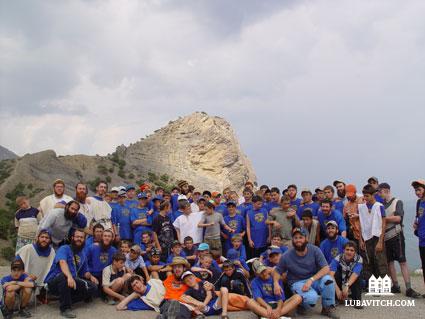
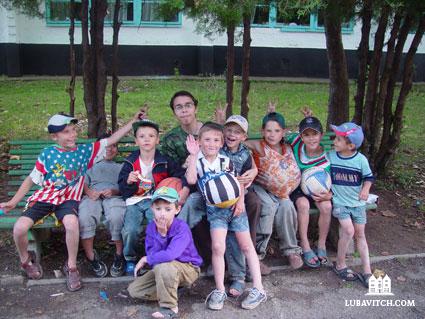
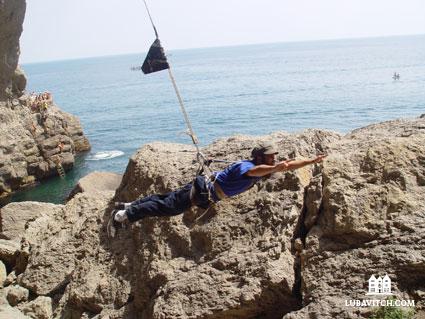
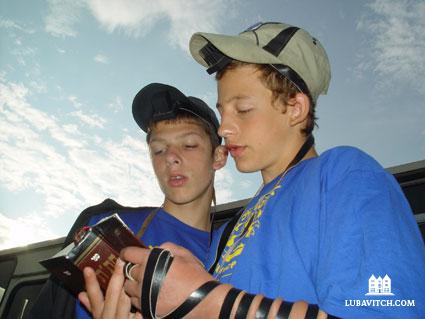

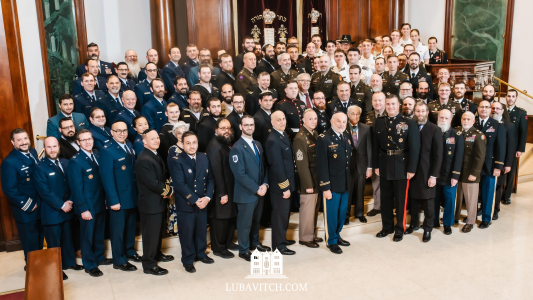

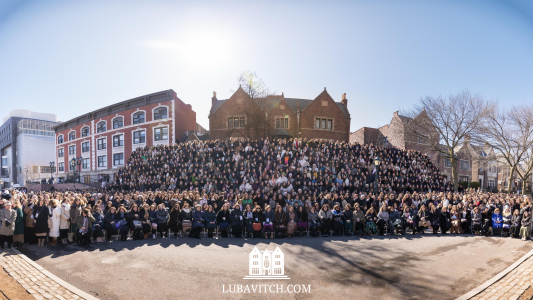
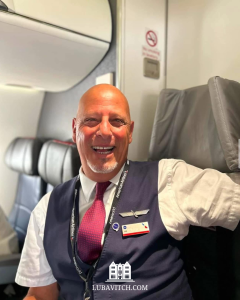




Be the first to write a comment.